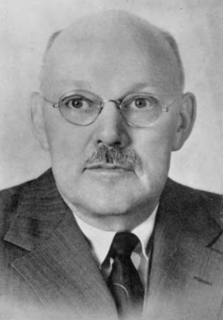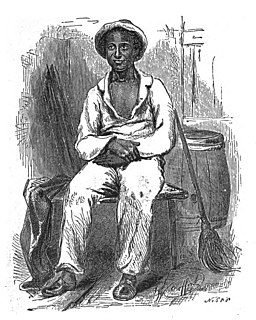A Quote by Stanislaw Lem
Man does not create gods, in spite of appearances. The times, the age, impose them on him. Man can serve his age or rebel against it, but the target of his cooperation or rebellion comes to him from outside.
Related Quotes
Public opinion contains all kinds of falsity and truth, but it takes a great man to find the truth in it. The great man of the age is the one who can put into words the will of his age, tell his age what its will is, and accomplish it. What he does is the heart and the essence of his age, he actualizes his age. The man who lacks sense enough to despise public opinion expressed in gossip will never do anything great.
The mortal enemies of man are not his fellows of another continent or race; they are the aspects of the physical world which limit or challenge his control, the disease germs that attack him and his domesticated plants and animals, and the insects that carry many of these germs as well as working notable direct injury. This is not the age of man, however great his superiority in size and intelligence; it is literally the age of insects.
At such times, the heart of man turns instictively towards his Maker. In prosperity, and whenever there is nothing to injure or make him afraid, he remembers Him not, and is ready to defy Him; but place him in the midst of dangers, cut him off from human aid, let the grave open before him, then it is, in the time of his tribulation, that the scoffer and unbelieving man turns to God for help, feeling there is no other hope, or refuge, or safety, save in his protecting arm.
When Claude Debussy studied at the Paris Conservatory from age ten to age twenty-two, many considered him a rebel because of his treatment of dissonance and his disdain for the established forms. He reputedly turned to a fellow student during a performance of Beethoven with the words, "Let's go. He's starting to develop.
A man follows the path laid out for him. He does his duty to God and his King. He does what he must do, not what pleases him. God's truth, boy, what kind of world would this be if every man did what pleased him alone? Who would plough the fields and reap the harvest, if every man had the right to say, 'I don't want to do that.' In this world there is a place for every man, but every man must know his place.
Nothing feebler than a man does the earth raise up, of all the things which breathe and move on the earth, for he believes that he will never suffer evil in the future, as long as the gods give him success and he flourishes in his strength; but when the blessed gods bring sorrows too to pass, even these he bears, against his will, with steadfast spirit, for the thoughts of earthly men are like the day which the father of gods and men brings upon them.
In the present age, man proves his separation from his Creator by his spirit of self-sufficienc y and positive rejection of God. The present issue between God and man is one of whether man will accept God's estimate of him, abandon his hopeless self-struggle, and cast himself only on God who alone is sufficient to accomplish his needed transformation.
That hour in the life of a man when first the help of humanity fails him, and he learns that in his obscurity and indigence humanity holds him a dog and no man: that hour is a hard one, but not the hardest. There is still another hour which follows, when he learns that in his infinite comparative minuteness and abjectness, the gods do likewise despise him, and own him not of their clan.
[Man] is the only animal who lives outside of himself, whose drive is in external things—property, houses, money, concepts of power. He lives in his cities and his factories, in his business and job and art. But having projected himself into these external complexities, he is them. His house, his automobile are a part of him and a large part of him. This is beautifully demonstrated by a thing doctors know—that when a man loses his possessions a very common result is sexual impotence.
Neither son loved the father for himself. They both were using the father for their own self-centered ends rather than loving, enjoying, and serving him for his own sake. This means that you can rebel against God and be alienated from him either by breaking his rules or by keeping all of them diligently. It 's a shocking message: Careful obedience to God's law may serve as a strategy for rebelling against God .
A man who gives way to his passions is like a man who is shot by an enemy, catches the arrow in his hands, and then plunges it into his own heart. A man who is resisting his passions is like a man who is shot by an enemy, and although the arrow hits him, it does not seriously wound him because he is wearing a breastplate. But the man who is uprooting his passions is like a man who is shot by an enemy, but who strikes the arrow and shatters it or turns it back into his enemies heart.




































